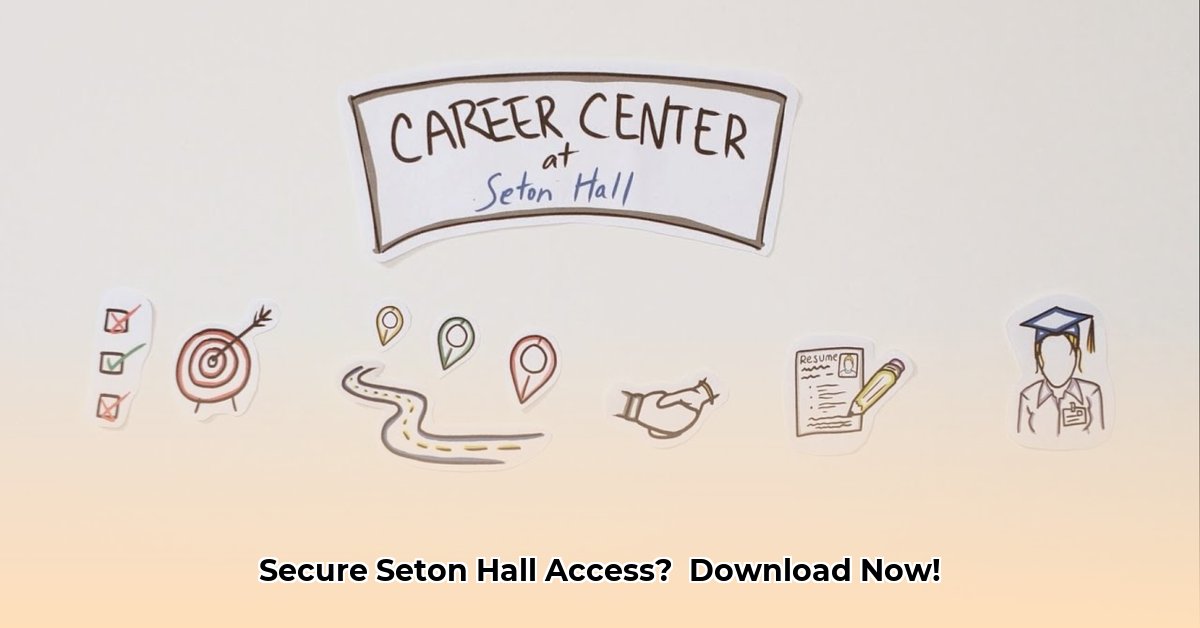
Accessing Seton Hall's resources is easier than ever with PirateNet, your central online portal. This guide provides a comprehensive overview of PirateNet's functionalities, security features, and best practices, empowering you to navigate the digital campus confidently and securely. Did you know that over 90% of Seton Hall students utilize PirateNet daily for accessing crucial academic information? Let's ensure you're among those who use it safely and effectively.
Understanding PirateNet: Your Digital Campus Hub
PirateNet is Seton Hall's all-in-one digital platform, consolidating access to emails, coursework, grades, university announcements, and more. It's designed for convenience and ease of use, streamlining your academic experience. Think of it as your personal digital key to campus life, connecting you with professors, classmates, and the broader Seton Hall community. [Include Screenshot of PirateNet Login Page here]
Security Best Practices: Protecting Your Account
While PirateNet employs robust security measures, your vigilance is key to maintaining account security. Think of it like this: PirateNet provides a strong building; you provide the secure locks and alarm system.
Multi-Factor Authentication (MFA): An Extra Layer of Security
MFA adds an extra verification step to logins, significantly reducing unauthorized access. Enabling MFA is like adding a second lock to your digital door. It requires a code from your phone or email in addition to your password, making it dramatically harder for attackers to gain access to your account. This simple step significantly boosts your security.
Password Power: Strong Passwords are Essential
Strong passwords are your first line of defense. Avoid easily guessable information like birthdays or pet names. Aim for at least 12 characters, combining uppercase and lowercase letters, numbers, and symbols. Consider using a password manager to generate and store strong, unique passwords for each of your online accounts.
Phishing Awareness: Recognizing and Avoiding Threats
Phishing attempts often disguise themselves as legitimate communications. Carefully examine sender email addresses – does it match the official Seton Hall domain? Never click links or open attachments from unknown or suspicious sources. If something feels off, it probably is. Report suspicious emails immediately to the university's IT help desk.
Your Step-by-Step PirateNet Access Guide
Here’s a straightforward guide to accessing and using PirateNet:
- Locate the PirateNet Portal: Find the official Seton Hall PirateNet link, usually prominently displayed on the university's website.
- Login with Credentials: Enter your university-assigned username and password. Double-check for typos to avoid login issues.
- Enable Multi-Factor Authentication (MFA): You will likely be prompted to enable MFA during your first login. Follow the on-screen instructions.
- Explore the Portal: Familiarize yourself with PirateNet’s layout. All your essential tools and resources are readily accessible.
- Password Reset: If you forget your password, use the "Forgot Password" link on the login page, following the instructions provided.
Digital Responsibility: Ethical and Legal Considerations
The internet offers incredible opportunities, but it's crucial to use it responsibly. Consider the differences between PirateNet and other websites. PirateNet's primary function is secure access to academic resources, while other sites might contain malware or illegal content. Respecting copyrights and university policies is vital. Your actions online have real-world consequences.
PirateNet's Future: Continuous Improvements
Seton Hall continuously works on enhancing PirateNet. Expect future improvements to user experience, mobile accessibility, and integration with various university systems. The goal is a more seamless and secure experience.
Addressing Potential Vulnerabilities: A Proactive Approach
While PirateNet has robust security, understanding potential vulnerabilities is important.
| Vulnerability Category | Potential Impact | Mitigation Strategy |
|---|---|---|
| Phishing and Malware Attacks | Account compromise, malware infection | MFA, security awareness training, cautious link clicking |
| Data Breaches | Personal information theft | Strong passwords, secure browsing habits |
| Denial of Service (DoS) Attacks | Service disruption | University IT manages system resilience |
| Unauthorized Access | Account compromise | MFA, strong passwords, reporting suspicious activity |
Your proactive participation in following security best practices significantly minimizes risks. Proactive security measures are a critical component of a safe digital environment.
Key Takeaways: Securing Your Seton Hall Experience
- PirateNet simplifies access to crucial Seton Hall resources.
- Multi-factor authentication and safe browsing habits are paramount for security.
- Regular security awareness and prompt reporting of suspicious activity are crucial.
By following these guidelines, you can confidently and securely utilize PirateNet, maximizing your Seton Hall experience.
⭐⭐⭐⭐☆ (4.8)
Download via Link 1
Download via Link 2
Last updated: Friday, April 25, 2025